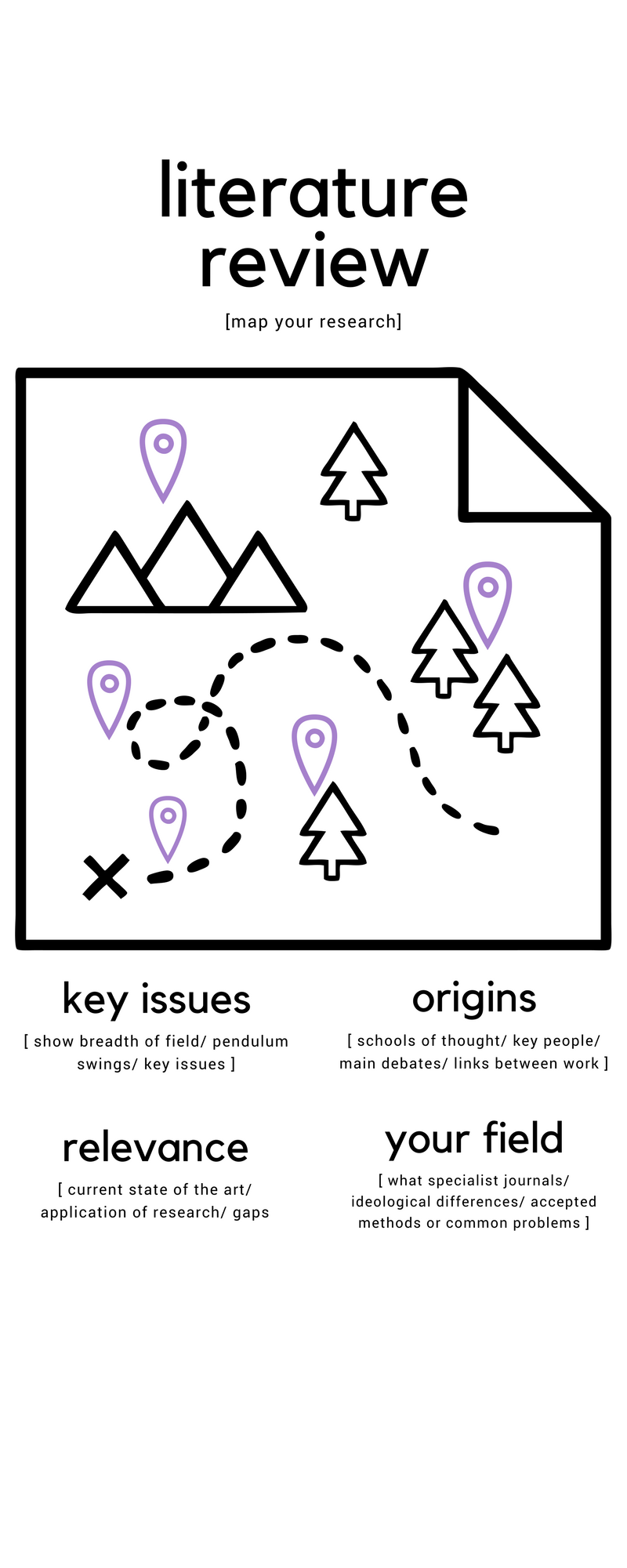For most people a literature review makes up at least 10% of their final thesis. Think of it as a kind of map that guides your reader through the 'state of the art' in your research field, focusing specifically on how it is relevant to your own project.
Written in this way, your literature review will help to make your research meaningful by establishing key debates, information and context relevant to it. This is not about listing everything that came before your own research but selecting what is important and relevant to situate, justify and contextualise your work. This will ultimately help you to show how your own research builds on, complements or challenge the existing state of the art in your field.
From the reader's point of view, your literature review should show where your research emerged from and what has impacted your understanding or influenced the design of your research. The review is not just a nod to your broader field but a chance to institute yourself within it.
All this means that critical thinking lies at the heart of a good literature review. Stella Cottrell's 2014 'Dissertations and Project Reports' guide lists some of the things a literature review gives you opportunity to demonstrate:
- Breadth and depth of understanding: that you can identify and engage with specialist research whilst making 'passing reference' to relevant work that yours doesn't directly converse with
- Understanding and judgement: that you have a sophisticated, up to date grasp of your field, recognise seminal work and can appropriately select from it what is relevant to your own research
- Organisation, relevance and coherence: that your selection of literature is relevant, logically introduced, comparative and 'tells the story' of your research development
- Style, brevity and criticality: that you can deal with sources critically rather than simply describing them and that your references are concise, avoiding long quotations
If you think about your literature review as a map it will help in two ways:
- By showing that you know the most important features of the academic landscape in your field and are capable of succinctly drawing a wide range of reserach together in a focused manner
- By using this to specifically guide your reader to your own work and orient them to the broader landscape that it is a part of
There are a number of useful website and blogs with detailed suggestions of how to put together a literature review. Just remember, each of these may be written from a specific disciplinary perspective and it is vital that you focus your own work around what is expected from your own discipline. However, there is always lots to be gained from reading about a range of approaches, so spend some time looking through what others have written.
Warwick University's PhD blog 'PhD Life' has a post on 'writing a literature review'.
The University of Leicester provides study skills guidance on literature reviews.
Also see The Thesis Whisperer blog: 'How to become a literature searching ninja' and '5 ways to tame the literature dragon'.
And this resource list links to books and e-books on all aspects of postgraduate research, including the literature review.
